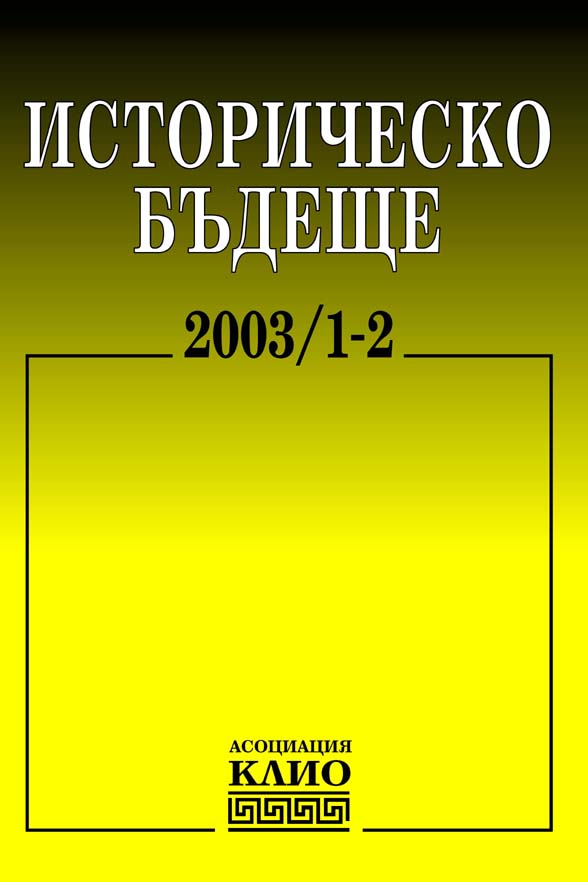Град Варна от Късното средновековие до националната епоха — регионалната срещу националната история
The Town of Varna from the Late Middle Ages to the National Epoch: Regional History against the National One
Author(s): Svetlana IvanovaSubject(s): History
Published by: Асоциация Клио
Keywords: Varna; Ottoman registers; Moslems; Bulgarians; Gagaouzes; Regional history
Summary/Abstract: The author presents with detailed annotation the data from fifteen published and unpublished Ottoman registers of the 16th –17th centuries. The documents are of the kind tapu tahrir, cizye and avariz, kept in Sofia, Istanbul and Ankara. In the study an attempt is made to outline certain tendencies in the development of the population of Varna by consecutively examining the various ethno-confessional groups: Moslems (rayah, soldiers, including servants of the Islamic cult, who formed the local élite), Orthodox Christians (who had at their disposal a well-functioning parish network, a sign of continuity in relation to the preceding period) — Bulgarians, Greeks, Gagaouzes, Armenians. The author presents as well certain data about the Gypsies, the people from Dubrovnik, and the Jews who lived in the town. Varna was an example of the widespread use of Turkish by the townspeople, without them being Moslems or Turks. Polylingualism, as a matter of fact, used to be an integral part of the daily round of Balkan towns prior to the National epoch. The delayed (at least according to the historical sources) self-identification of the Bulgarian community in the 19th century imposed a specific form on the (“belated”) Bulgarian National Revival in Varna. The history and territory of Varna had to be “won back” from the Greeks, which led after the liberation of Bulgaria to anti-Greek actions and driving away part of the Greeks, while the ones remaining in the town had to “admit their Bulgarian roots”. In fact, the Gagaouzes faced the same alternative. The article ends with an attempt to connect the history of Varna with the problems of the interrelation between local and national history. Publications about the latter do not readily allow polyculturalism in spite of its having gained acceptance in the local history of both Varna and other Bulgarian towns. That is due to various reasons, including the probably active “hidden” programme of Bulgarian historiography for “Bulgarianizing” Bulgarian history, perceived as ethno-history. Besides, non-Bulgarians are easily ignored in Bulgarian history. Against this background the history of Varna as well as other local ones become exceptions, special cases, which do not correspond with the national programme of the country’s “great history”. The author makes certain suggestions about studying local history in schools with a view to the requirements of intercultural education.
Journal: Историческо бъдеще
- Issue Year: 2003
- Issue No: 1-2
- Page Range: 195-229
- Page Count: 35
- Language: Bulgarian
- Content File-PDF

